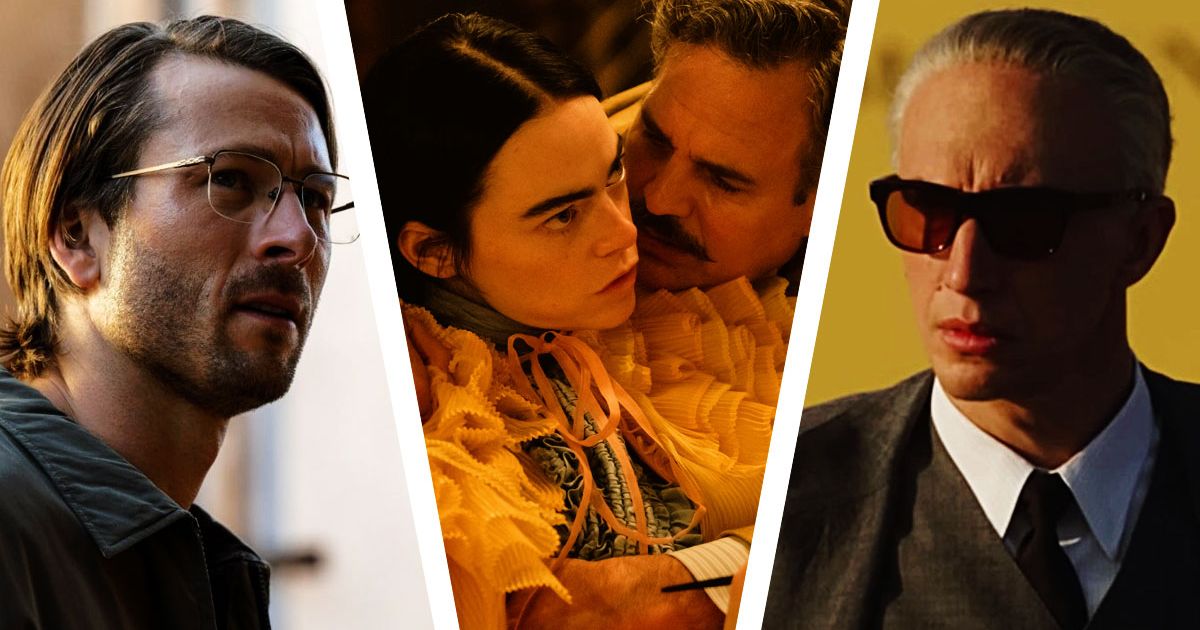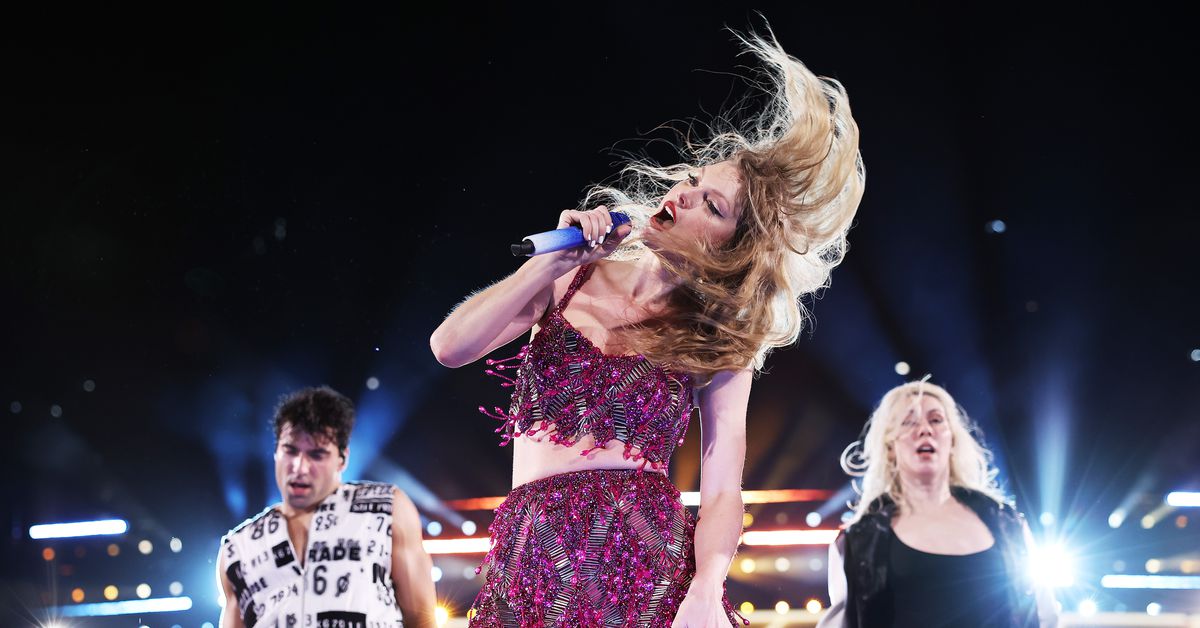
The Hitmen, Horny Gals, and Hypermasc Bros of Venice
This year’s Venice Film Festival, sapped as it was of movie stars and glamor, had a slightly uncanny feeling. The selfie-seekers outside the Sala Grande, usually clamoring for the likes of Joaquin Phoenix or Lady Gaga, were instead falling over themselves to take photos with, for example, jury president Damien Chazelle, who looked baffled when I saw him yanked into a random cell phone frame as he left the opening night presentation. The press conferences were occasionally perfectly ludicrous — Caleb Landry Jones did the Dogman one with a Scottish accent — but mostly dry; the parties, few and far between and empty of celebrity hijinks, couldn’t even excite the tourist who sat across from me at lunch one day and described the gala she’d just attended as “nothing special.” In one screening I sat next to a man who held an unlit wooden pipe in his mouth the entire time.
Fortunately, many of the movies were great — Poor Things, The Green Border, Hit Man, Ferrari, and Priscilla stood out, among others — and a lot of them seemed to be in incidental conversation with each other, repeating themes and ideas that hint at a roiling collective unconscious obsessed by performed masculinity, killing people for money, abject horniness, and Willem Dafoe. Below, I outline the oft-Freudian fixations of the 80th Venice Film Festival’s hive mind.
The Trend: Hitmen





Michael Mann’s Ferrari.Photo: Lorenzo Sisti
Only five women were given competition slots at Venice; the other 16 were given to male directors. Coincidentally, there sure were a lot of movies about hypermasculine dudes at Venice this year. Specifically, the hypermascs were mostly (1) older,( 2) white, (3) moody as fuck because they were (4) making some perceived personal sacrifice in the name of war/cars/money. Three movies were about men in naval crises, and one was about Mads Mikkelsen setting out to tame and conquer the Danish heath. In Michael Mann’s Ferrari, Enzo Ferrari cheats very calmly and regularly on his wife, mourns his dead child, and tries to figure out if he should recognize his mistress’s son as his own. He spends most of the movie storming around Italy in a bad mood because he has to do all of this while making very fast cars that sometimes kill people. The movie briefly flirts with upending the idea that The Cars Were Worth it, that maybe men and their reckless toys do not quite earn the brutal human cost they require, but then at the end it’s like … no, actually, the cars were worth it.
Many of the Venice films featured a man Making a Big Choice, usually about a problem they invented themselves — in Coup de Chance, for example, a rich financier ponders putting a hit (see: first trend) on his wife’s lover and eventually, her mother, who’s onto him for the first hit. Some movies were interested in unpacking the performance of masculinity and its accompanying cinematic tropes (war, cars, money, rage, misogyny, contract killing, et al.). Aggro Dr1ft and The Killer play very briefly (and the former just barely) with critiquing these tired totems, but neither goes very far with the idea. Whereas Hit Man plays delightfully and cleverly with notions of identity and gender performance and human mutability — Powell’s Gary Johnson tries on different varieties of manhood as literal costumes.
Who did it best?
The best direct address of the hypermasc onslaught was from director Liliana Cavani, who was awarded Venice’s Golden Lion for Lifetime Achievement on its opening night and gave a powerful speech. “Cars are boring,” she said. “I’m sick to death of looking at cars in a movie.” Just kidding, she actually said this: “I’m the first female person to receive this award. There are women writers and directors who are working as well as men. It’s not quite right if we don’t give them a chance to be seen.”










































































